
The Free Press

In the fall of 1992, I was a junior at Middlebury College, and I took a seminar on American foreign policy. It was a very small New England college kind of affair. Snow on the quad. Lots of fleeces and papers and reading and chit chat about externships and Bill Clinton and Rhodes Scholars and someone’s girlfriend at Williams or Dartmouth. (Did it matter? It did not.)
I don’t remember all the nuances of John Gaddis’s exquisitely argued “Strategies of Containment,” or General Westmoreland's missteps in Vietnam, or the various objections to Ronald Reagan’s deployment of intermediate-range nuclear missiles in West Germany. What stands out was the not so subtle exuberance. America had just triumphed over Soviet authoritarianism and here, in this room, were the future architects of our emerging, unipolar moment, meeting to hash out the details of our new geopolitical order.
Was it really necessary for all of the ex-Warsaw Pact states to embrace liberalism? Or would it be enough to integrate them into the global marketplace and then—voilà—democracy? Should we admit Kazakhstan to the North Atlantic Treaty Organization? What about Russia?
I remember a woman in class, who, I believe, became an investment banker in New York before launching some fintech app and moving to Palo Alto, talking about a “web of interlocking, economic and strategic interests,” and I thought: Now that is smart. And this kid who was about to take off for a semester in Guangzhou asking whether the whole liberalization-modernization chronology even mattered. Sure it did. But not that much. Because democracy was going to happen anyway. So was capitalism. That had already been decided.
That was the lesson of 1989 to 1991, when the whole communist charade unraveled and we imagined ourselves graduating into a borderless world—one that didn’t just validate everything that America had done but everything America was. This was the Great American Promise, the idea that, if enough heavily credentialed people in Washington got it just right, we could construct a future that would not merely build on but actually transcend the past.
It was easy for us to imagine this future to end all futures because we had just won the Cold War and because we were American, which is to say we had very little time for or interest in history. We knew about it. We had read about it and been tested on it. But we didn’t think inside it. We didn’t imagine ourselves being subjected to it. No, we were shaping it.
This was the prism through which I viewed our limitless tomorrow when, a month later, I arrived in Paris for a semester. The Strategic Arms Reduction Treaty, referred to by my peers knowingly as START II, had just put an end to the nuclear showdown between the superpowers, and Clinton was about to move into the White House, and there was a lot of buzz about NAFTA, which was just months from being ratified. I was 20 and living in a one-room dump on the Boulevard Raspail with a fellow named Kip who had a girlfriend named Peg—I believe he went into risk management—and, one night, I remember being out with some Americans bouncing around a sweaty, musky concert hall near Sacre Coeur filled with beer and very thin cigarettes. Two of the girls said, Let’s go to Prague. So we went to Prague. It was the farthest east I’d ever been.
I was supposed to go back to Paris after a few days in the Slavic wilds, but I took an overnight train to Krakow. I wanted to see Auschwitz. I remember rolling through Poland in the early dark and thinking, It smells like a war just happened, even though it hadn’t. I thought: This is living.
That was it for me. Over the next few years: More Poland. More Czech Republic. Slovakia, Slovenia, Hungary, Romania. Tunneling through the new, old places. Then: Russia. First Kaliningrad, the westernmost corner of the country, then overnight, via train, through a corner of Lithuania, into the surreality of Belarus, and then onto Moscow, where I lived in a Stalin-era apartment on the Garden Ring. By now, George W. Bush was president, and we were neck deep into the reign of the neoconservatives, and the whole of eastern Europe was in our proverbial corner except the Kremlin, which seemed unsure about what it wanted. The uncertainty was the most electrifying thing. It made you think that being there mattered, that—crazy as this may sound—if you wrote the right article you might nudge the arrow of history in the right direction.
On one of those reporting forays, I wound up in Khabarovsk, seven time zones away from Moscow, where I’d gone to write about a Ukrainian stripper and her husband, an American G.I. who’d gotten himself in trouble. On my last night in town, I went to a dinner party in a microscopic, poorly lit Khrushchyovka, one of the countless apartments built under Nikita Khrushchev.
Toward the end, after all the vodka, the herring, the soup, the dumplings, more vodka, black bread, more vodka, one of my hosts, an older gentleman who had been a professor of literature, told me, as so many Russians had, “You can give up writing philosophical articles about Russia. You will never know it.” Ah, yes, this again. My outsiderness. “My sunny disposition doesn’t prohibit me from writing about your country,” I said, a bit too earnestly, in very stilted Russian that I had spent years slaving away at. Speaking slowly to make sure I didn’t miss anything, he replied: “It’s not your sunny disposition. It’s your frame of reference. Your frame of reference is America. But Russia does not want to be America. Russia exists in a parallel universe.”
At the time, I thought, Russia doesn’t know what it wants. There was little doubt by then about Vladimir Putin’s orientation, but Russians were another matter. It wasn’t just that they liked American popular culture—everyone did. It was that there was too much interaction between us and them. Too much business, cultural exchange, hop-scotching between New York and Moscow and Los Angeles and Vladivostok. We were connected now. Was that not validation of the Great American Promise?
In retrospect, the professor saw something—everything—that I did not.
We were not at the start of something brilliant and beautiful, but in the middle of a very short in-between. A kind of floating before history would sweep us up again. The Post-Cold War era—the unipolar moment—was not really an era. It lasted just three decades, from December 26, 1991, the day Mikhail Gorbachev declared the Soviet Union dead, to February 24, 2022, when Vladimir Putin invaded Ukraine.
It’s clear now that that era, that pause, can be broken into three periods. There were no proclamations announcing the beginning or the end of each, but when you pull back a little, the demarcations start to come into sharp relief.
There was the Period of Ascendance: The nineties. The decade of the American hyperpower, NATO expansion, EU expansion, China and then India fully embracing the market, the American economic boom, globalization, the rise of the Internet. Then came September 11, 2001, and that came to an end.
What followed was the Period of Hard Truths and its cavalcade of failures. Abroad: the missing weapons of mass destruction, the endlessness of Afghanistan, the pointlessness of Iraq. And at home: Katrina, the housing crisis, the fall of Lehman, and the bailing out by our elites not of the little guys, but of the giants. Those deemed too big to fail. The election of Barack Obama, on November 4, 2008, was historical and exciting. What too many couldn’t see was that it was also the dawn of our resignation.
The Period of Resignation amounted to a gradual, growing realization that all these disasters were symptomatic of a deeper rot. The astounding thing about the new president was that, instead of rectifying our wrongs, instead of extirpating the rot, he seemed to take for granted that there was nothing to do but manage our decline and lead from behind. There was nothing we could do to stop Bashar Al Assad. Or the mullahs from getting their nuclear arsenal (better to cut a deal, and quick). And Russia? “A few months ago, when you were asked ‘what’s the biggest threat facing America?’ you said Russia,” Obama said, incredulously, to Mitt Romney in an October 2012 debate. Then he went in for the dunk: “The 1980s are now calling to ask for their foreign policy back. Because the Cold War has been over for 20 years.”
Everyone who had not grown up on the winning side of history got that Obama, like W., like Clinton, was blinkered, incapable of seeing outside the narrowing parameters of our politics. Trump got this instinctively, because, for all his riches, his victim complex and the Queens-born social outsider status he tried so bitterly to overcome had taught him what the American power elite looks like from the outside. So he went to war against the old institutions. But he had nothing to replace them with. He was blundering and polarizing. He made things worse.
By the time Biden delivered the State of the Union, the Russians had been rampaging through Ukraine for nearly a week, and it had become impossible to deny that the old order was over. We’d just witnessed the death of a world many people have never lived outside of: The world of alliances and markets orbiting around the American solar plexus, the world in which everyone more or less agreed on the fundamentals and all that was left to be done was to oversee, tinker, ensure the perpetual flow of goods and services and human cogs through this transnational, or supranational, or decentralized, network of perfectly calibrated arteries and hyperlinks. The fantasy of the early 1990s, of my post-adolescence—that was dead. Just as important: It was never coming back. And no one, including the most powerful man on Earth, knew what came next.
Biden has tried, in his doddering way, to resurrect the world of his past. “My report is this,” he told the nation last week, “the State of the Union is strong—because you, the American people, are strong.” Maybe. And then: “We are stronger today than we were a year ago.” Did anyone believe this? And then: “We will be stronger a year from now than we are today.” It sounded like a dream.
When the Iron Curtain came down, my classmates and I peered at the new world through an American lens. We couldn’t conceive of any other. In the new era, there will be an American lens. But also—and maybe more so—there will be a Russian one and a Chinese one, and German and Brazilian and Turkish lenses, too.
There will be alliances—that between China and Russia and Iran is already clear—but there will be no Big Idea to replace the one that ended the Cold War, no overarching set of rules or understandings or pacts or international conferences that will bind us together and ensure that we do not succumb to the violence and nihilism that came before the Pax Americana. The order America built after World War II—which, despite its many imperfections, brought more security and safety and prosperity to humankind than ever before in history—is melting back into the world that preceded it.
We can blame this on Putin or Xi Jinping or the North Koreans or this or that bad actor, but they are simply acting the way they have always acted. The problem is us. What has changed is not the barbarians of the world, but that we gave up on the justice of our cause.
It’s true that the so-called neoliberals, those who spent their formative years, two or three or four decades ago, in seminar rooms at New England colleges, got many things wrong. They were arrogant; they had their blind spots; and now everyone on the left and the right hates them. It’s easy to. What we forget is that they got one thing very, very right, which is that there are things that are far worse than American hegemony. The new right, the identitarian left—they never say what comes after the old order, because they can’t think that far ahead, or they don’t care to. They’re just happy to watch it all burn.
Vladimir Putin knows how much daylight there is between hard geopolitical reality and American rhetoric. But we prefer to hew to the old platitudes. They make us think that we can rewind or undo or make things better if we just say the right things. It is time to imagine what our president seems incapable of: a new order, jungle-like, shot through with the fevers and hatreds of the world as it had always been before. Uncivilization.


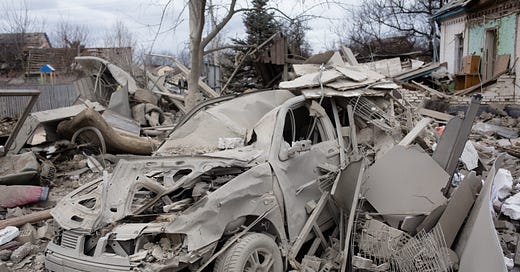

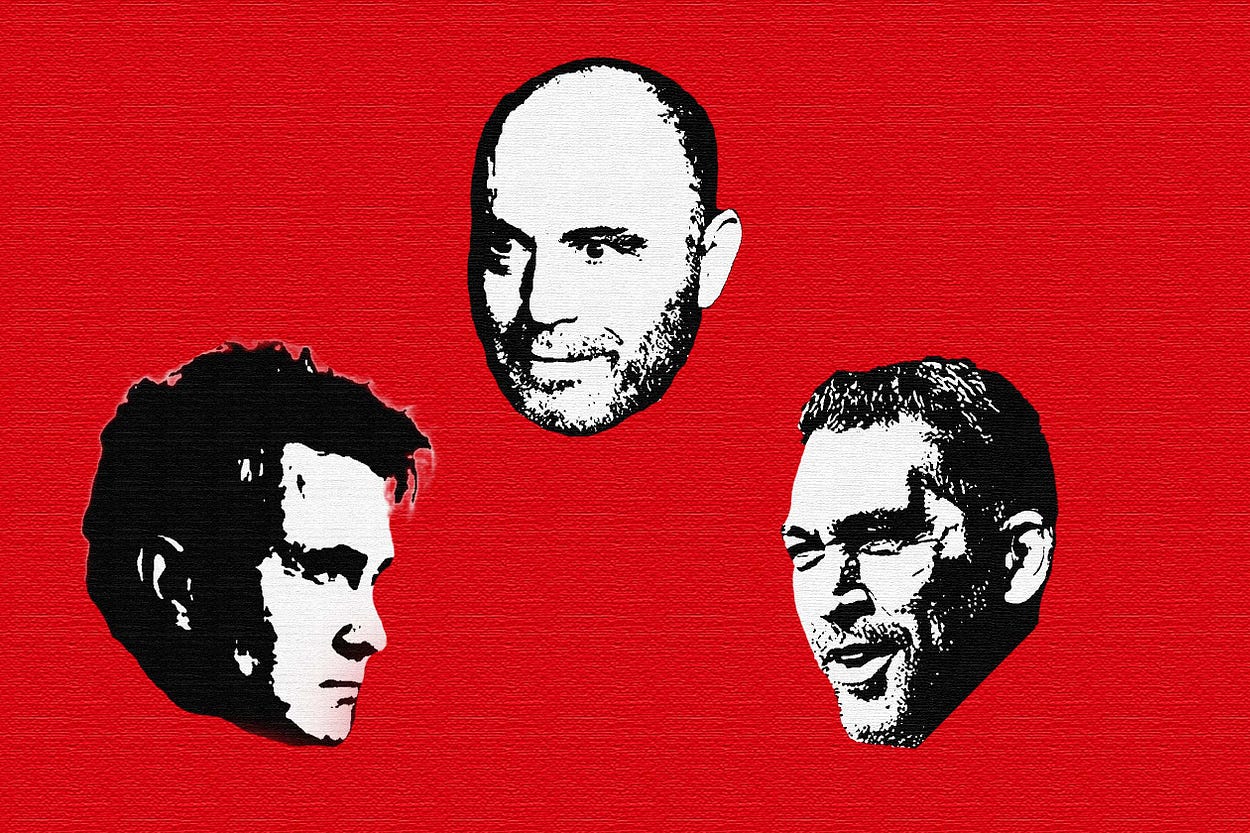

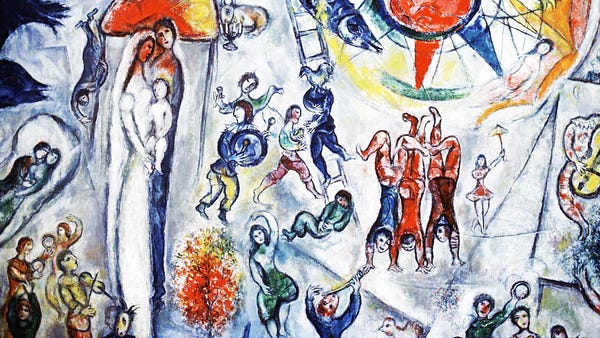

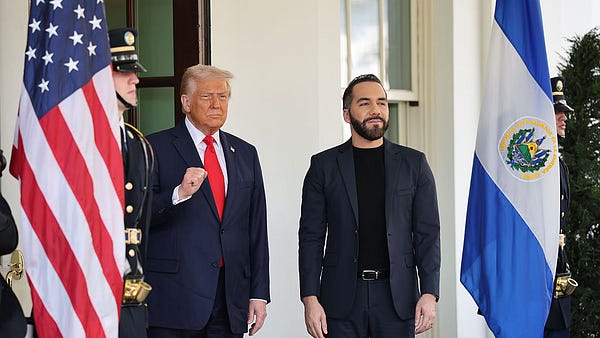

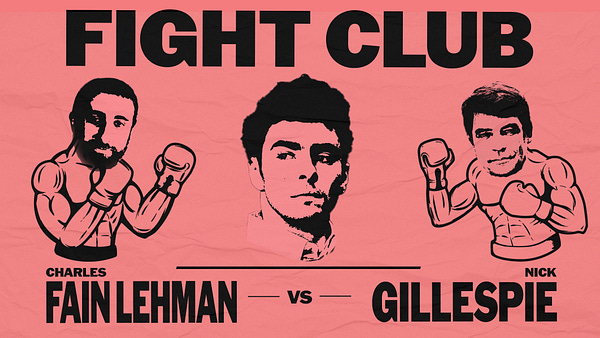

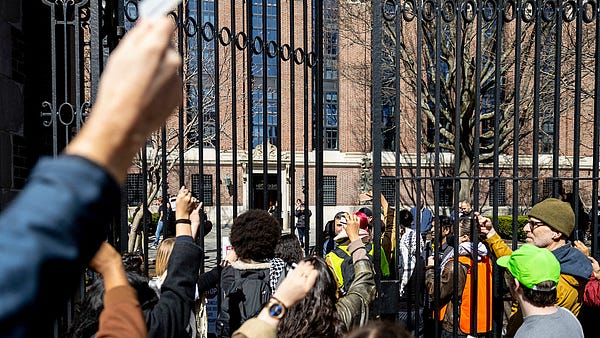

Another rambling, emoting article from Common Sense. Where's the editor? Is there one? Its thesis, that we're now in a new order, goes completely unsupported. Apparently we're just supposed to accept it. Tell the Russians hit by U.S.-led sanctions that we live in a new order now. They might differ.
I would love to read an article that doesn't feel the need to denigrate Trump in some fashion. Saying Trump "made things worse" is to miss completely what happened. He is an outsider who had the temerity to challenge the assumptions of our so called leaders. Almost everything got better under Trump. No new wars, a peace treaty in the middle east, low inflation, high employment, low gas prices etc. The left and RINO's were so threatened by his policies that they declared all out war internally by fabricating the Russia hoax, the Charlottesville fine people hoax, drinking bleach hoax, military people are stupid hoax etc. and unleashing riots in 2020 where Dem governors and mayors decided to do nothing to protect their own people.
I do not think Trump is perfect by any stretch of the imagination but he is the best president of my lifetime and I include Reagan in that assessment so the apparent necessity of writers to slam him when it is undeserved is quite annoying.